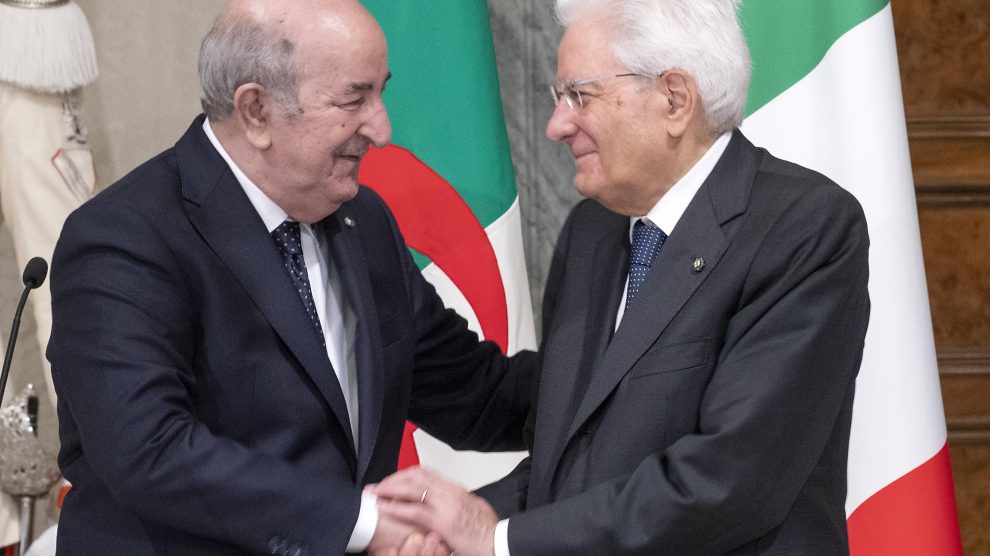Ever closer. As Italian Foreign Minister Luigi Di Maio remarked on Wednesday, Italy’s desire to deepen relations with Algeria has good geopolitical, cultural, and commercial reasons. Case in point:
- Algiers turned into Rome’s biggest gas supplier in April, overtaking Moscow, following a deal between Italian Prime Minister Mario Draghi and Algerian President Abdelmadjid Tebboune.
- Algeria will supply Italy with up to 33 billion cubic metres (bcm) a year, amounting to roughly 40% of the latter’s needs.
See you at mine. PM Draghi had travelled to Algiers to finalise that deal. On that occasion he invited President Tebboune to Rome: on Wednesday, he touched down in the Eternal City.
- The Algerian Head of State met with his Italian counterpart, Sergio Mattarella, as well as with PM Draghi.
- He will also travel to Naples, replicating the pattern of Mr Mattarella’s trip to Algeria, which had included two stops: Algiers, the capital, and Annaba, an important industrial hub.
Beyond the headlines. Professor Toufik Bouqaida, who teaches political science at the University of Algiers, told Decode39 that the visit is happening under rather exceptional circumstances. Both because of the Russian war in Ukraine, with its effects on security and energy in Europe, and the situation on the southern shore of the Mediterranean.
- “Algeria is going through political and security turmoil and multiple economic crises, and the two sides are trying to strengthen these relations through high levels of trade and investments. This visit will result in several contracts, which will act as a starting point.”
- “However,” he continued, “I hope that Algerian-Italian relations will not remain confined to official statements in front of the cameras and reciprocal visits, as it has been in the past.”
Investments and know-how. Ali Qureshi, a journalist specialising in economic affairs for the Algerian news channel Echorouk, told Decode39 that the Italo-Algerian rapprochement is accelerating on the economic level, and it’s bound to broaden: “ties of friendship, cooperation and strategic political dialogue are being strengthened.”
- He explained that Algeri’s main objective for this State visit is attracting more Italian investment, including through the over 200 Italian companies actively working in Algeria.
- On Thursday, the heads of Sonatrach and Eni – respectively the Algerian and Italian energy major – signed a Memorandum of Understanding aiming to accelerate the development of gas fields in Algeria and decarbonisation through green hydrogen.
- It is plausible to assume that new investment channels – which are technically favoured by the new Algerian investment law – are being opened.
- Algeria has made “significant strides in the knowledge economy,” continued Mr Qureshi, and it also looks forward to benefiting from Italy’s experience in SMEs, shipbuilding and the pharmaceutical industry.
- A few months ago, Mr Tebboune sent a government delegation to Italy, to study the experience of emerging and small Italian companies in order to replicate it in Algeria, he added.
The Libyan issue. Algeria is seeking a new pragmatic relationship with Europe, based on mutual interest, that can drive transformation. It started with the economy, through gas, now it’s set to expand along the two countries’ alignment on third-party dossiers. Such as Libya.
- Italy and Algeria feel the same way about the Libyan crisis and the need to hold presidential elections. Rome has been working to involve these countries in Libya’s stabilisation process.
- But Russia’s lurking. Although Algeri’s contacts with European countries have intensified due to the latters’ hunt for non-Russian gas, it also kept in touch with Moscow, as demonstrated by the recent Algerian visit of Russian Foreign Minister Sergei Lavrov.




